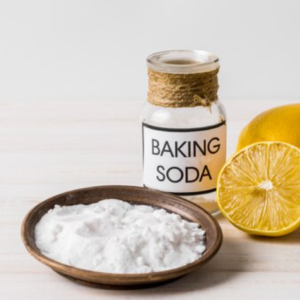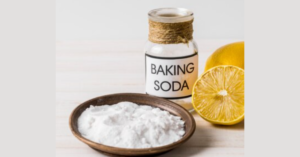Baking soda is widely accepted as a pantry staple due to its versatility in baking. However, whether due to dietary restrictions, health goals, or environmental reasons, many bakers are exploring alternatives. This article dives deep into vegan-friendly and natural alternatives to baking soda in baking, ensuring your recipes remain light, fluffy, and flavorful without compromise.
Table of Contents
What is Baking Soda?
Baking soda, scientifically known as sodium bicarbonate, produces carbon dioxide gas when it reacts with acidic ingredients. Bubbles are created as a result of this reaction, which gives baked goods their characteristic rise. Commonly used in cookies, cakes, and quick breads, baking soda is an integral part of countless recipes.
Why Consider Alternatives?
Baking soda might not fit everyone’s lifestyle or preferences due to:
- Dietary Restrictions: Some diets avoid sodium or synthetic ingredients.
- Environmental Impact: Mining sodium bicarbonate has ecological consequences.
- Health Concerns: High sodium intake may lead to health issues.
- Flavor Preferences: Baking soda’s taste can sometimes overpower delicate recipes.
Switching to natural or vegan-friendly alternatives offers a way to address these concerns while maintaining baking success.
Understanding the Chemistry of Baking
Before diving into substitutes, understanding the role of leavening agents is key. Baking soda requires an acidic counterpart—like vinegar, lemon juice, or buttermilk—to activate. Substitutes work similarly, relying on their own chemical properties to mimic this reaction.
Common Vegan-Friendly Baking Soda Alternatives
Here’s a look at five popular substitutes and how they compare:
1. Baking Powder

As a ready-to-use mixture of baking soda and acid, baking powder can be used as a substitute for any baking soda or acid product. Use it when recipes already include enough liquid but lack additional acidity.
2. Lemon Juice
Its natural acidity pairs well with plant-based milk to create light, airy textures. Replace one teaspoon of baking soda with two teaspoons of lemon juice.
3. Apple Cider Vinegar
Perfect for savory and sweet recipes, apple cider vinegar mimics baking soda’s effects when combined with a neutralizing ingredient like almond milk.
4. Club Soda
The carbonation in club soda provides lift, especially in pancake and waffle batters. Substitute part of the liquid in recipes with club soda for best results.
5. Cream of Tartar
Often used in meringues, this powdery acid activates well with plant-based milk, creating the ideal lift for cookies and muffins.
Specialty Options for Unique Needs
Some unconventional choices include:
- Molasses: Offers a rich flavor alongside its mild acidity.
- Plant-Based Yogurt: Works well in dense baked goods.
- Mashed Bananas: Provides moisture and slight lift, ideal for cakes.
How to Measure Substitutes Correctly
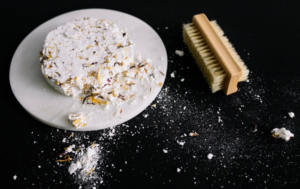
When using alternatives, accuracy is critical. For example:
- 1 teaspoon of baking soda = 2 teaspoon of lemon juice or vinegar.
- Combine alternatives with precision to maintain texture and flavor.
Case Studies: Baking with Alternatives
Here are two successful recipes:
- Vegan Pancakes with Apple Cider Vinegar: This substitute resulted in fluffy, golden pancakes.
- Chocolate Cake with Baking Powder: Perfect rise and consistency.
Challenges like density can arise but are resolved with adjustments to liquid ratios.
Pros and Cons of Using Alternatives
Alternative | Pros | Cons |
Baking Powder | Easy to use, widely available | May contain added sodium |
Lemon Juice | Natural and flavorful | Alters taste slightly |
Apple Cider Vinegar | Versatile, health benefits | Requires careful balancing |
Club Soda | Adds fluffiness | Not as potent in all recipes |
Environmental and Health Benefits
Switching to natural alternatives reduces dependency on mined resources and can lower sodium consumption. This shift supports both sustainability and personal health goals.
Tips for Transitioning to Alternatives
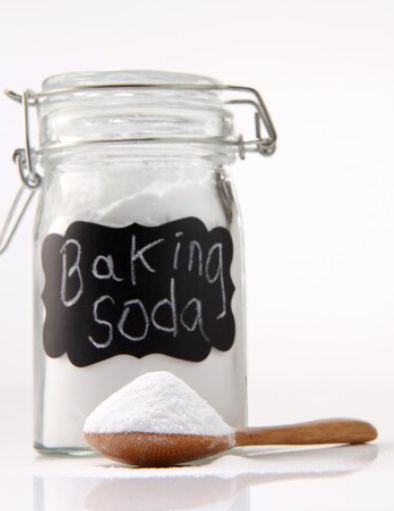
- Experiment in Small Batches: Avoid wasting ingredients.
- Keep Notes: Document successful ratios for future use.
- Start Simple: Begin with recipes that naturally suit the substitute.
Practical Baking Tips for Using Alternatives
To successfully bake with substitutes, a few extra tips can go a long way in ensuring perfect results:
Adjust Liquid Levels
Many natural substitutes like lemon juice or apple cider vinegar add liquid to the batter. Make sure to reduce other liquid ingredients slightly to maintain the right consistency.
Mind the Flavors
Ingredients such as molasses or mashed bananas bring their unique flavors to the dish. While this can enhance certain recipes, it’s essential to consider how these tastes interact with other flavors in the recipe.
Mix Ingredients Thoroughly
Incorporating substitutes into your batter properly is crucial. For example, when using club soda, add it gently to avoid releasing too much carbonation before baking.
Test with Smaller Batches First
Experimenting with substitutes in a smaller portion of your recipe helps identify any adjustments needed without wasting ingredients.
Use Fresh Ingredients
The effectiveness of substitutes like baking powder or cream of tartar depends on their freshness. Always check expiration dates and store them in airtight containers.
The Science of Carbonation in Baking
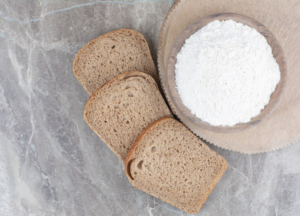
One fascinating aspect of using alternatives like club soda is how carbonation impacts the texture of baked goods. Club soda contains dissolved carbon dioxide, which releases as bubbles when mixed into batters. These bubbles expand during baking, creating airy textures. For pancakes, muffins, and quick breads, this makes club soda an excellent baking soda substitute.
Comparing Alternatives: Baking Results
Cookies
- Best Alternative: Baking powder or cream of tartar.
- Result: Retains a chewy texture without significant changes to flavor.
Cakes
- Best Alternative: Apple cider vinegar or lemon juice.
- Result: Achieves a soft, fluffy texture with a slightly tangy aftertaste.
Pancakes
- Best Alternative: Club soda or plant-based yogurt.
- Result: Light and airy pancakes, ideal for breakfast spreads.
How Substitutes Align with Dietary Preferences
Natural baking soda alternatives offer great flexibility for accommodating dietary restrictions:
- Gluten-Free Baking: Substitutes like apple cider vinegar work well with gluten-free flours, aiding leavening while keeping recipes gluten-free.
- Low-Sodium Diets: Options such as lemon juice or vinegar add no sodium, making them perfect for those reducing salt intake.
- Vegan Baking: All substitutes discussed, including plant-based yogurt and mashed bananas, align seamlessly with vegan principles.
Expert-Backed Insights on Baking Without Baking Soda
In a 2020 study published in Food Chemistry, researchers explored how natural leavening agents like lemon juice and vinegar impacted gluten-free cakes. The study found that these agents effectively enhanced the rise and texture of cakes, even without baking soda. This supports the idea that thoughtful substitutes can yield results comparable to traditional ingredients.
Exploring Cultural Baking Techniques
In some cultures, natural leavening agents have been used for centuries:
- Ethiopian Injera: Traditionally fermented teff flour creates bubbles and rise without synthetic baking soda.
- Indian Dhokla: This steamed savory cake relies on lemon juice and curd for natural fermentation.
Learning from these methods can inspire creative approaches to baking with alternatives.
The Future of Baking Soda Alternatives
As the demand for plant-based and eco-friendly products grows, new innovations in natural leavening agents are emerging. Brands are now creating blends specifically tailored for vegan baking, reducing the guesswork for home bakers. Keep an eye out for these products in health-focused grocery stores or online marketplaces.
Conclusion: Baking with Confidence
Switching to vegan-friendly and natural baking soda alternatives is a rewarding journey. Whether you’re motivated by health, environmental concerns, or simply the thrill of experimenting in the kitchen, these substitutes offer versatile and effective solutions. With practice, you’ll discover which options suit your recipes best, enabling you to create delicious baked goods without compromise.
FAQ’s
For cookies, cream of tartar or baking powder works well.
No, baking powder contains both baking soda and an acid.
Yes, but you’ll need to adjust liquid quantities.
Apple cider vinegar or baking powder.
Yes, it helps create a light texture.
Follow a 1:2 ratio for baking soda to acid replacements.
Yes, it provides moisture and slight leavening.
Lemon juice or apple cider vinegar due to their natural origins.
Some, like molasses, can add distinct flavors.
Yes, options like cream of tartar and plant-based yogurt fit vegan diets.
Club soda or baking powder works best for recipes like banana bread.
Yes, when mixed with water, they provide moisture and structure but may not replicate leavening.
While most work well, delicate recipes like soufflés may require more precise adjustments.
It depends on the option—items like lemon juice are affordable, while specialty ingredients may cost more.
Keep items like vinegar or cream of tartar in a cool, dark place to maintain freshness.
Absolutely! Options like apple cider vinegar work well in breads or biscuits.
Most substitutes, like vinegar or molasses, have long shelf lives if stored properly.
At high altitudes, reduce acid substitutes slightly and increase baking times to compensate.
Yes, some brands offer pre-mixed leavening agents designed for vegan and natural baking.
Some substitutes may require slightly longer baking times; monitor closely for doneness.

10 Proven Benefits of Bananas for Health and Well-being
Bananas are known for their natural sweetness, ease of peeling and rich nutrition. This makes them one of the most commonly consumed fruits in the world. Though bananas originated in Southeast Asia, they are now

Disease X: The Next Pandemic?
Emerging infectious diseases pose one of the greatest threats to human health and global stability. One of them, “Disease X” has intrigued scientists and WHO, as it represents the potential for an unknown disease to
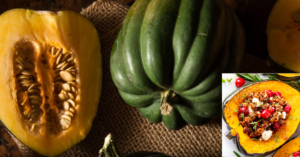
The Remarkable Benefits of Eating Acorn Squash in Winter
Acorn squash has all the qualities that make it special. Winter calls for warmth, comfort, and nutrition, and acorn squash provides all of these. This vegetable is not just delicious but also has a lot

Omega-3 Fatty Acids
Omega-3 fatty acids play a very important role in the nutrients needed to maintain overall health. As people are getting to know about it, its popularity is increasing day-by-day. These fats play a very important
